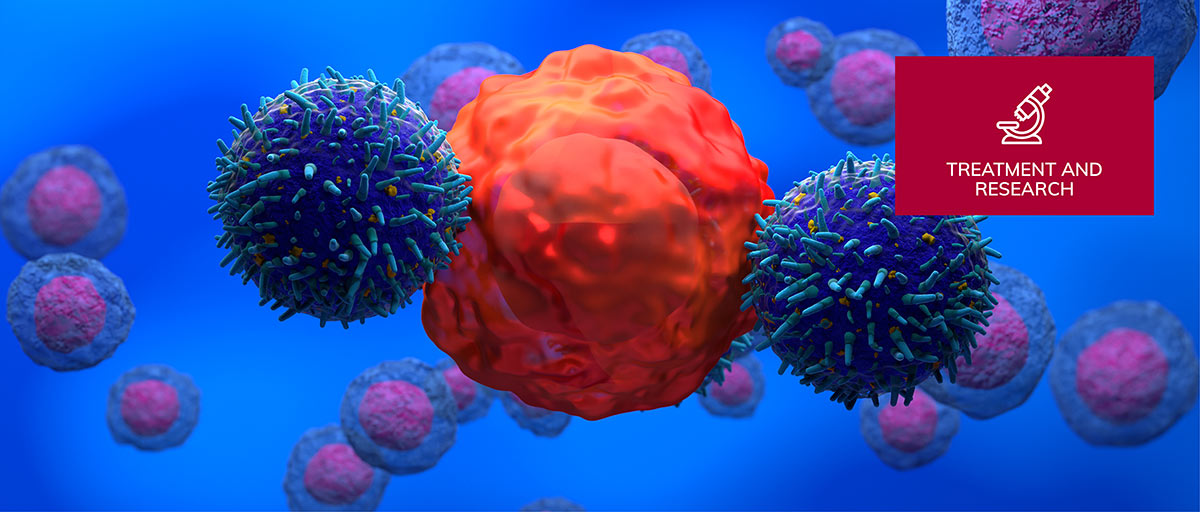
CLL / SLL Treatment and Research
Advancements are happening everyday
Treatment and research are intimately linked. The best treatments today may be upstaged by new therapies discovered in research in the future. Take your time to learn about treatment options currently available and new ones that are on the way.
Advancements are happening everyday
Treatment and research are intimately linked. The best treatments today may be upstaged by new therapies discovered in research in the future. Take your time and learn about what treatment options are now available and the new ones are on the way.
Treatment and Research: 4 Things to Know
CLL patients are living longer than ever.
The life expectancy of patients diagnosed with CLL / SLL has improved every decade, largely because of improved care made possible by new treatments and research.
CLL treatments are better than ever.
In almost every setting and in almost every subgroup studied, the newer targeted therapies approved since 2015 have proven superior to older protocols using chemotherapy.
Better single agents and drug combinations show promise.
New improved medications and drug combinations are constantly improving outcomes.
Research drives success.
CLL / SLL is not a solved problem and never will be without new treatments and more research.
FEATURE
ASH 2022: Dr. Jennifer Brown on Zanubrutinib vs. Ibrutinib for Relapsed/Refractory Chronic Lymphocytic Leukemia or Small Lymphocytic Leukemia (CLL / SLL)
The Bottom Line:
Zanubrutinib is more efficacious than ibrutinib and produces longer progression-free survival (PFS) in patients with relapsed/refractory (R/R) chronic lymphocytic leukemia (CLL) or small lymphocytic leukemia (SLL). It is also better tolerated with fewer cardiac side effects than ibrutinib.
Who Performed the Research and Where Was it Presented:
Dr. Jennifer Brown from Dana-Farber Cancer Institute and colleagues presented the results at the American Society for Hematology Annual Meeting in 2022 and a companion article published in the New England Journal of Medicine (NEJM).
ADDITIONAL READING
RECENT NEWS
When appropriate, the CLL Society will be posting updates and background information on the present Coronavirus pandemic focusing on reliable primary sources of information and avoiding most of the news that is not directly from reliable medical experts or government and world health agencies.
















